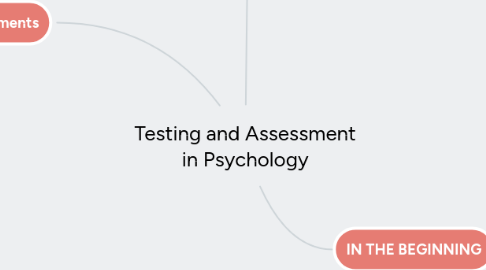
1. A. Experiments
1.1. Field experiments
1.1.1. An independent variable (IV) is manipulated and a dependent variable (DV) is measured
1.2. Natural experiments
1.2.1. A situations where it would be impossible to manipulate an independent variable but such ‘manipulation’ occurs naturally
1.3. Laboratory experiments
1.3.1. In Zimbardo’s (1973) ‘mock prison’ study participants were informed prior to the study about what would be involved – namely that they would be assigned the role of prisoner or guard and then required to act out the designated role
1.3.2. Gamson et al. (1982) tried to circumvent the problem of deception by arranging for participants to agree to be deceived
2. B. Non-experimental research
2.1. Observational studies
2.1.1. Observing anyone in a public place may appear to be acceptable but it may also be important to consider what behaviors are being observed. For example, people may not think it’s an invasion of privacy to be observed in a park on a sunny day but might object if the observers’ aim was to record instances of sexual activity (as in Humphreys’ study).
2.2. Cross-cultural research
2.2.1. Cross-cultural research has given us a rich source of data about diverse groups of people and how they live
2.3. Questionnaire
2.3.1. The speed of collecting data and their relative ease of analysis and comparison
2.3.2. The most common way to collect this data is through handing out survey forms to students, often at the start of a lecture
2.4. Research using correlational analysis
2.4.1. Experiments allow us to make inferences about what caused something because we have manipulated the variables (or they have been naturally manipulated) and found out what effect they have
3. IN THE BEGINNING
3.1. Who Is the Client?
3.1.1. The simple act of accepting the referral and setting up the appointment may occur almost automatically, not much the thought may be devoted to the question of what specific duties or professional obligations are owed to which parties
3.2. Informed Consent
3.2.1. Psychologists are expected to explain the nature of the evaluation, clarify the referral questions, and discuss the goals of the assessment, in a language the client can readily understand
3.3. Test User Competence
3.3.1. Psychologists are ethically bound not to promote the use of psychological assessment techniques by unqualified persons, except when such use is conducted for training purposes with appropriate supervision
3.4. Planning the Evaluation
3.4.1. The psychologist should clarify the questions to be answered in an interactive process that refines the goals of the evaluation in the context of basic assessment science and the limitations of available techniques
3.4.2. The simple act of accepting the referral and setting up the appointment may occur almost automatically; not much thought may be devoted to the question of what specific duties or professional obligations are owed to which parties
3.5. Selection of Instruments
3.5.1. APA’s ECTF charged with revision of the code concluded that psychologists should base their assessments, recommendations, reports, opinions, and diagnostic or evaluative statements on information and techniques sufficient to substantiate their findings (ECTF, 2001)
3.6. Adequacy of Instruments
3.6.1. Psychologists are expected to develop, administer, score, interpret, or use assessment techniques, interviews, tests, or instruments only in a manner
3.7. Appropriate Assessment in a Multicultural Society
3.7.1. Psychologists are invariably confronted with the challenge of people who by reason of race, culture, language, or other factors are not well represented in the normative base of frequently used assessment tools
3.8. Getting Around Language Barriers
3.8.1. Psychologists using the services of an interpreter must assure themselves of the adequacy of the interpreter’s training, obtain the informed consent of the client to use that particular interpreter
3.9. What’s in a Norm?
3.9.1. Knowledge of the applicability of the instrument’s normative basis to the client
3.9.2. Psychologists should select and interpret tests with an understanding of how specific tests and the procedures they entail interact with the specific individual undergoing evaluation
3.10. Bases for Assessment
3.10.1. The current APA ethics code holds that psychologists typically provide opinions on the psychological characteristics of individuals only after conducting an examination of the individuals that are adequate to support the psychologists’ statements or conclusions
3.10.2. The simple act of accepting the referral and setting up the appointment may occur almost automatically; not much the thought may be devoted to the question of what specific duties or professional obligations are owed to which parties
